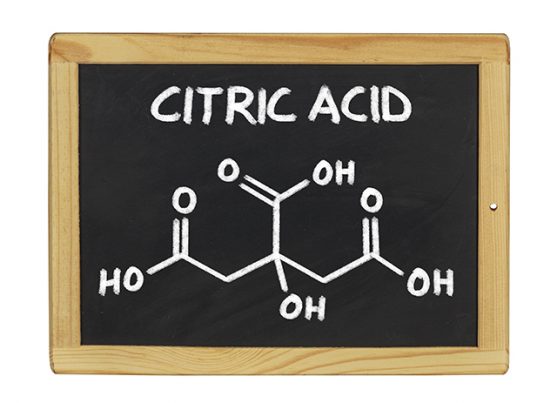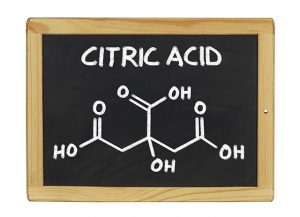
Citric acid sources, health benefits and uses
Tuesday, September 12, 2017 by Rhonda Johansson
http://www.naturalpedia.com/citric-acid-sources-health-benefits-and-uses.html

Citric acid are organic compounds that are found in most citrus fruits. It was first isolated by the Swedish chemist Carl Wilhem Scheele in 1784 and later on mass manufactured as a flavoring agent through the fermentation of cane sugar or molasses. Citric acid is highly popular among soft drink brands due to its relatively sweet flavor and preservative properties. The compound greatly increases the acidity of the environment it is placed in, which makes it difficult for microbes to survive, all the while enhancing taste.
People often mistake citric acid to be an antioxidant due to its innumerable health benefits. That said, citric acid is more appropriately an acidity regulator, enhancing the activity of other antioxidants while not being one itself.
Citric acid mixes with various minerals and metals easily, which facilitates their absorption in the body.

Medicinal benefits for citric acid
Remember that citric acid is derived from most citrus fruits. As such, they contain the same beneficial effects as their parents, though perhaps being a shade more potent due to their being more concentrated.
Citric acid is used to aid mineral supplementation and ensures the proper functioning of various systems. The organs that benefit the most from citric acid are the kidneys as the acid prevents the formation of kidney stones. Citric acid likewise maintains the ability to bind itself to calcium, forcing the latter’s expulsion from the kidneys and thus preventing disorders of said organ. This proves to be useful in the prevention of other kidney ailments as well.
The organic compound also aids in neutralizing the damage caused by free radicals. This has made it a favored ingredient among skin care brands. Citric acid can help regenerate skin tissue, slow down the aging process, and lighten dark spots and freckles.
Taken orally, citric acid can reduce inflammation due to tonsillitis. Patients are told to gargle with a solution of citric acid mixed with water. This has a dual effect of killing infection-causing germs as well as reducing gastric acidity. The hidden implication of this is that citric acid may be a potential curing supplement for people who suffer from GERD (gastroesophageal reflux disease).
Nonetheless, too much citric acid can cause severe nausea, loss of appetite, and abdominal pain. Another easy way to check if you are consuming too much citric acid is to check your stool. Bloody or black, tarry stool mixed with cloudy urine can be indicative of excessive citric acid in the body. These symptoms are also associated with fluctuating fever and migraine headaches.
Citric acid supplements are not recommended for babies and children younger than 10.
Body systems supported by citric acid
Citric acid improves overall health. It works with other organic compounds and amino acids in the body to facilitate the healthy functioning of all organs. However, citric acid by itself is often used to support the skin, hair, and nails.
Where to learn more
- What’s the deal with citric acid: the one ingredient found in almost every food product you buy
- Acrylamide production in foods could be slashed 40 percent by citric acid, glycine additives
- 8 Herbs That Dissolve Uric Acid Naturally
- 4 Natural Solutions For Arthritis
- 20 Collective Reasons To Drink Lemon Water Every Morning On Empty Stomach
Summary
Citric acid is an organic compound derived from citrus fruits. While it was previously used as a flavoring agent for many soft drink brands, it is now being used as a medicinal supplement for overall health.
Sources include:
Tagged Under: Tags: Citric Acid





